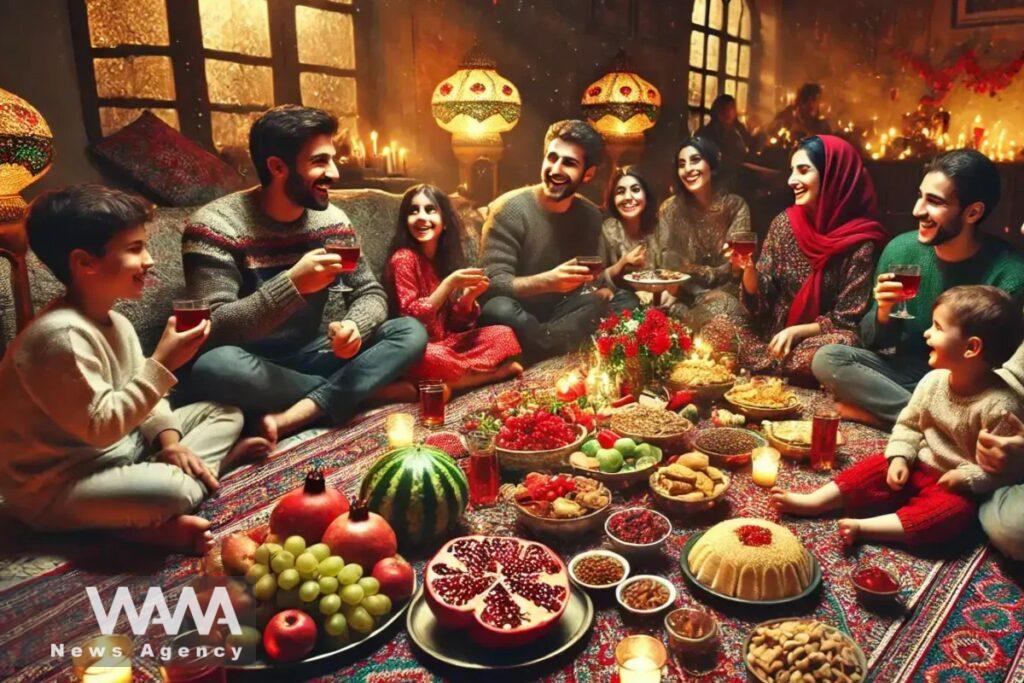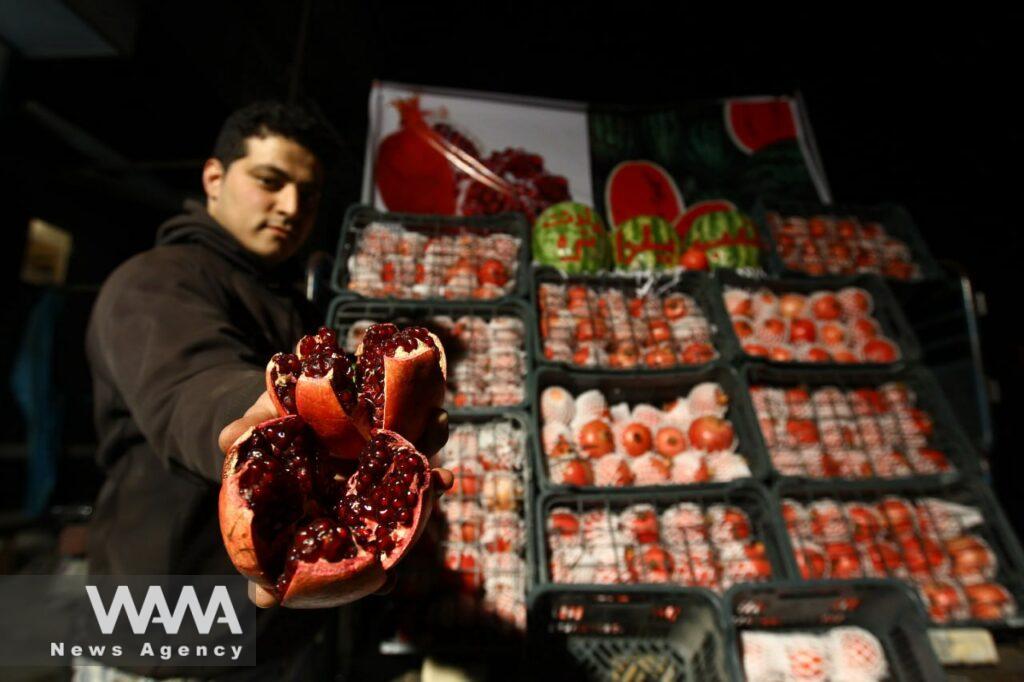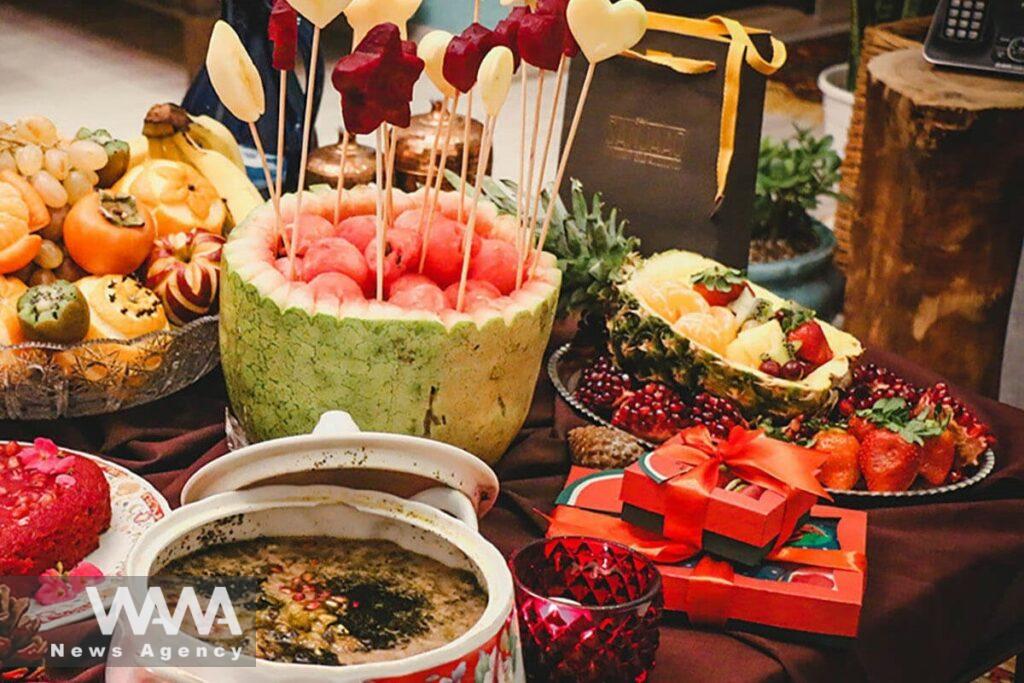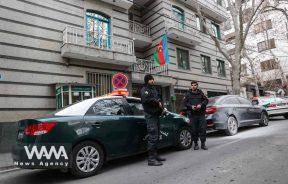Yalda, A Festival Beyond Borders
WANA (Dec 19) – In today’s interconnected world, Yalda has evolved far beyond its origins in ancient Persia, gaining a modern, global footprint.
Thanks to the Iranian diaspora and increased cultural exchange, this winter solstice celebration has started inspiring traditions, gatherings, and even culinary experiments across the globe.

As Iranians have emigrated to countries like the United States, Canada, Australia, and parts of Europe, they’ve taken their traditions with them. Yalda has become not just a way to celebrate their heritage but also a tool to introduce Persian culture to their local communities.
For instance, in cities like Los Angeles, known for its large Iranian population, Yalda has become a recognized cultural event. Persian restaurants and cultural centers host public Yalda gatherings, complete with poetry readings, traditional spreads of fruits, nuts, and sweets, and performances of Persian music. These events often invite non-Iranian friends and neighbors, turning the celebration into a multicultural experience.
In Canada, where long winters parallel Yalda’s themes of light and renewal, Iranians have been blending Yalda customs with Christmas traditions. A festive table might include pomegranates and watermelon alongside Christmas ornaments, symbolizing a bridge between the two cultures.
Fusion in Cuisine: Everybody’s Favorite Part
One of the most distinctive elements of Yalda is the ceremonial spread of foods that symbolize abundance, health, and light. In diaspora communities, these spreads are often adapted to reflect local tastes and available ingredients.
For example, while watermelon—a Yalda staple symbolizing summer’s warmth—is not always available in winter months in colder climates, other fruits like persimmons or apples are used as substitutes. In multicultural Yalda gatherings, Persian delicacies like saffron rice pudding (sholeh zard) might share space with international winter favorites like pumpkin pie or gingerbread cookies.
The popularity of pomegranate, a fruit central to Yalda, has surged globally due to its reputation as a “superfood.”

Yalda night in Iran – Majid Asgaripour / WANA News Agency
Many non-Iranians, intrigued by its symbolic importance in Yalda, have started incorporating pomegranate seeds into their winter salads, desserts, and even cocktails, creating a modern nod to this ancient tradition.
Virtual Yalda: A Celebration Without Borders
The rise of digital platforms has allowed Iranians scattered across the globe to reconnect during Yalda in ways previously unimaginable. Virtual Yalda celebrations have become common, especially after the COVID-19 pandemic highlighted the importance of staying connected during times of isolation.
Families separated by continents now host online poetry readings, light candles together over video calls, and share stories about their favorite Yalda memories.
In some cases, virtual events have brought together not just Iranian family members but also international friends eager to learn about the celebration.
Social media platforms like Instagram and TikTok have further amplified Yalda’s reach. Influencers and chefs from various cultural backgrounds now share videos of themselves preparing Persian-inspired Yalda dishes or decorating tables with elements borrowed from the festival. Hashtags like #YaldaNight and #WinterSolstice have seen a surge in engagement, creating curiosity about the festival among people who may never have encountered it before.
Multicultural Gatherings: Where Yalda Meets the World
One of the most heartwarming outcomes of Yalda’s globalization is the way it has become a celebration of cultural exchange. In cities with diverse populations, Yalda-themed events often incorporate elements from other solstice traditions. For instance:
- In Scandinavia, where Yule celebrates the longest night of the year, Iranian communities have introduced Yalda’s vibrant storytelling and poetry into winter gatherings.
- In India, Yalda sometimes merges with Makar Sankranti, a festival celebrating the sun’s transition and the end of long nights, creating a unique blend of Persian and Indian rituals.
- In the United States, Yalda potlucks often feature dishes from a variety of cultures, turning the event into a celebration of unity and diversity.
Yalda as a Cultural Ambassador
Through its modern adaptations, Yalda has become more than just an Iranian celebration; it is now a symbol of cultural resilience and connection. By sharing the festival with the world, Iranians have created opportunities for cross-cultural understanding and appreciation.

This globalized version of Yalda proves that even as traditions evolve, their core values—hope, togetherness, and the triumph of light over darkness—remain universal. In a world that can often feel divided, Yalda stands as a testament to the power of cultural exchange, bringing warmth and connection to the longest, darkest nights.













